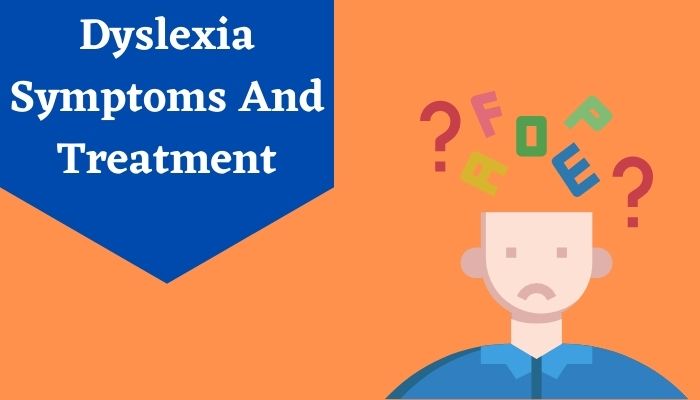Table of Contents
Rohan was a class 4 student, who was always punished by the teachers for not being attentive in the class and not completing his homework. His parents got fed up with daily complaints from the school and decided to send him to a boarding school. No one cared for what was the problem with Rohan until his new teacher there recognized that Rohan showed some dyslexia symptoms. Perhaps, because the teacher himself was a dyslexia patient in childhood. He at once called Rohan’s parents and inquired about Rohan’s birth and was there any complication during his birth?
Rohan’s teacher was right and at once got to know that his dyslexia is caused by birth complications because Rohan was a premature baby and that too with low birth weight.
So, what is dyslexia? What are the common causes of dyslexia and what is the most effective dyslexia treatment? Get answers to all these concerns about this phonological disorder that affects the person’s ability to read, pronounce, and comprehend words and letters.
What is Dyslexia?
In a layman’s language, dyslexia is a type of learning disability or reading disorder. People especially, children with dyslexia symptoms struggle all their life to decode letters and words. They have a hard time identifying and differentiating identical letters like b and d, i and j, g and p, and so on. Although children are more prone to this learning disorder, even adults can suffer from dyslexia. 5 out of 10 American kids are believed to suffer from signs of dyslexia.
4 Types of Dyslexia
Dyslexia is categorized into four different categories based on the different dyslexia symptoms. These four types of dyslexia are:
Phonological Dyslexia
This is a type of dyslexia where a person finds it difficult to process the sounds of different letters and as a result, face difficulty writing them. It is also known as auditory or dysphonetic dyslexia.
Surface Dyslexia
In this type of dyslexia, a person finds it difficult to recognize words and memorize them. It is also known as visual or dyseidetic dyslexia.
Rapid Naming Dyslexia
In this type of dyslexia, a person finds it hard to name a number, color, letter, or object. The speed to name things is pretty slow and the names don’t click to the mind automatically.
Double Deficit Dyslexia
This is a combination of both naming speed and phonological process deficit. This makes a person extremely weak in reading stuff.
Causes of Dyslexia
Studies reveal that dyslexia is a disorder that is present right at the time of birth and can take place due to several reasons like:
- Genetic Disorder
- Premature Birth
- Low Weight during Birth
- Exposure to Harmful Substances like Drugs, Alcohol, and Nicotine during Pregnancy
- Infection during Pregnancy
- Too Much Stress
- Brain Injury
- Age
Common Symptoms of Dyslexia
Different dyslexia symptoms and signs may vary from person to person and depending on the age. Here we are going to help you understand the sign of dyslexia based on the age of a child:
Dyslexia Symptoms in Pre-schoolers
- Delay in talking
- Difficulty to learn and remember letters
- Difficulty to learn nursery rhymes
- Mispronunciation of words
Dyslexia Symptoms in Primary School Children
- Trouble to understand speech
- Difficulty to remember the sequence
- Difficulty to process language
- Reading below standard level
- Difficulty to differentiate words
- Difficulty to spell words based on sounds
- Difficulty to read
Dyslexia Symptoms in Teenagers and Adults
- Mispronunciation of words
- Slow and abrupt reading
- Difficult to memorize
- Difficulty to understand expressions and jokes
- Taking too much time to write
- Difficulty to write the right spellings
- Difficulty to solve maths problems
Diagnosis of Dyslexia
Testing for dyslexia is impossible with one single diagnostic test. There are several factors worth considering to understand the cause and symptoms of dyslexia like:
- Family Background
- Psychological Testing
- Child’s Birth History and Complications
- Educational and Medical History
- Vision, Brain, and Hearing Tests
- Behavior at Home
- General Observation of Oral and Written Skills
4 Treatment Options for Dyslexia
Now, let us dive straight into understanding the right kind of treatment options for dyslexia. Since dyslexia is a learning disorder, much relief from this disorder can be sought through education and learning techniques. Moreover, plan for early treatment to help the child overcome the symptoms of dyslexia efficiently and significantly.
Following are some treatment options for dyslexia:
1. Reading Programs
The most widely used form of dyslexia treatment for kids is a reading program. Such a program aims to help them read faster and clearly. The two common reading techniques used for dyslexia kids are Orton Gillingham and Multisensory Instruction.
2. Special Education
Besides, kids suffering from dyslexia show immense improvement with the help of special education. This type of education is provided to them by a reading specialist on a group or one-to-one basis. The best thing about this treatment is that the kid doesn’t feel isolated because all other kids around are also suffering from dyslexia symptoms.
3. Learning Strategies
Likewise, parents can try some learning strategies to treat their child, who is suffering from dyslexia. Such children need to be taught without distraction in a quiet place. Moreover, reading along with them with the help of a CD or book helps a lot.
4. Learning Tools
After evaluating the symptoms of dyslexia, one can also use different learning tools like text to voice technology, and flashcards. These tools are easy to understand for children with dyslexia confusions.
The Bottom Line
Remember, symptoms of dyslexia may vary from person to person. Some people might experience mild symptoms, whereas, some may experience severe symptoms. Avoiding a person with dyslexia may prove demoralizing to that person. Instead, try to offer moral support and render help to a person suffering from dyslexia so that they can overcome this learning disorder.








